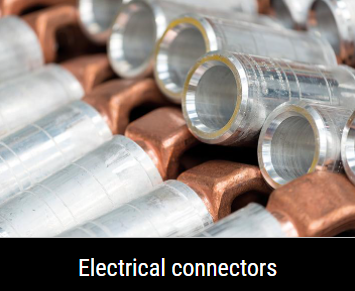Harnessing the power of friction welding

Katherine Nowill unveils the many advantages of friction welding.
Friction welding is a solid-state joining process that creates an industrial bond between two materials through the application of heat and pressure. It involves rotating or rubbing one component against another under pressure, which in turn generates frictional heat at the interface. This heat softens the parent materials, allowing them to forge together as the rotational/linear motion ceases and pressure is applied. Once the materials cool, they form a solid, metallurgically bonded joint.
Compared to traditional manufacturing methods, the parent materials being joined do not melt during the welding process. Instead, they are softened to a plastic state, allowing for the creation of a strong bond: minimal distortion and residual stresses in the welded components deliver a superior quality of weld, and a higher quality of product.
But the features and benefits of rotary friction welding extend beyond the product. Cost savings, sustainability and speed of manufacture are also key considerations for manufacturers who utilise the process. Here are just some…
Product integrity
Friction welding produces high-quality joints with minimal defects. The process generates intense heat localised at the weld interface, ensuring metallurgical integrity and structural consistency. This results in components with superior strength, durability, and reliability, crucial for critical industrial applications where failure could have severe consequences, such as transport, electrical power generation, rail and drilling in the oil and gas industries.
Cost savings
Friction welding presents a compelling opportunity for substantial cost savings when compared to traditional welding methods. By reducing the need for consumables like filler materials and shielding gases, this process effectively slashes material and inventory costs. In addition, the inherent efficiency and speed of friction welding translate into heightened productivity, driving cost-effectiveness across the entire production chain.
In contrast to ARC or MIG welding, rotary friction welding demands less investment in skilled labour. Given the ongoing shortage of specialised skills within industry, embracing rotary friction welding as an alternative manufacturing process offers businesses a strategic means to circumvent the challenges posed by skills gaps. This not only streamlines operations but also fortifies the resilience of the workforce in the face of evolving industry demands.
Environmental considerations
Friction welding is a more sustainable manufacturing process for several reasons. It significantly reduces material waste by eliminating the need for consumables used in traditional welding methods. It is more energy efficient as the process operates at a lower temperature and without material melting, leading to reduced energy consumption and a reduced carbon footprint. The long lifespan of rotary friction welding equipment versus traditional machines reduces the need for regular replacements, further minimising waste. Its versatility in joining various materials also optimises resource usage, making it an attractive option for sustainable manufacturing practices.
Speed
Friction welding is renowned for its rapid joining process, facilitating high-volume production runs with significantly shorter cycle times compared to traditional methods. The elimination of pre-heating further expedites the manufacturing process, enhancing overall efficiency. This remarkable speed serves as a unique selling proposition (USP) for customers operating within industries with stringent production schedules, where maintaining optimal efficiency is paramount for critical applications.
Versatility
Friction welding boasts exceptional versatility, enabling the joining of a diverse range of materials such as metals, plastics, and composites. This adaptability makes it suitable for a variety of applications spanning various industries. The processes wide-ranging applicability and utilisation across diverse manufacturing sectors result in joints characterised by exceptional mechanical strength and integrity. Through its solid-state bonding process, friction welding achieves a metallurgical bond between materials, often producing joints stronger than the base materials themselves. This superior strength and integrity make it a preferred choice for critical applications demanding robust, consistent, and reliable results.
Summary
The benefits of friction welding are undeniable. From its capacity to reduce material waste and energy consumption to its ability to produce high-quality joints across a spectrum of materials, the process stands as a testament to innovation in manufacturing. Its speed, versatility, and sustainability make it not only a cost-effective solution but also a reliable method for meeting the demands of critical applications in various industries.
As we navigate an ever-evolving landscape of industrial challenges, friction welding emerges as a beacon of efficiency, offering a solution towards enhanced productivity, reduced environmental impact, and strengthened product integrity. Embracing friction welding represents not just a technological advancement, but a commitment to excellence in manufacturing practices, paving the way for a more sustainable and resilient future.
1.The news above mentioned with detailed source are from internet.We are trying our best to assure they are accurate ,timely and safe so as to let bearing users and sellers read more related info.However, it doesn't mean we agree with any point of view referred in above contents and we are not responsible for the authenticity. If you want to publish the news,please note the source and you will be legally responsible for the news published.
2.All news edited and translated by us are specially noted the source"CBCC".
3.For investors,please be cautious for all news.We don't bear any damage brought by late and inaccurate news.
4.If the news we published involves copyright of yours,just let us know.
BRIEF INTRODUCTION
Cnbearing is the No.1 bearing inquiry system and information service in China, dedicated to helping all bearing users and sellers throughout the world.
Cnbearing is supported by China National Bearing Industry Association, whose operation online is charged by China Bearing Unisun Tech. Co., Ltd.
China Bearing Unisun Tech. Co., Ltd owns all the rights. Since 2000, over 3,000 companies have been registered and enjoyed the company' s complete skillful service, which ranking many aspects in bearing industry at home and abroad with the most authority practical devices in China.




